Retro Replay Review
Gameplay
Castlevania III: Dracula’s Curse refines the tight, precision-based platforming that fans loved in the original Castlevania while introducing new layers of strategy and choice. You control Trevor Belmont armed with the legendary “Vampire Slayer” whip, moving left and right, jumping over chasms, and dispatching undead foes. Heart-based sub-weapons—daggers, axes, holy water, boomerangs, and the time-stopping stopwatch—inject variety into each encounter, letting you find a combat style that suits your playthrough.
(HEY YOU!! We hope you enjoy! We try not to run ads. So basically, this is a very expensive hobby running this site. Please consider joining us for updates, forums, and more. Network w/ us to make some cash or friends while retro gaming, and you can win some free retro games for posting. Okay, carry on 👍)
What truly sets Dracula’s Curse apart is its branching path system. Midway through certain stages, you’ll be presented with divergent routes that affect level design, enemy types, and the narrative flow. This choice-driven structure encourages multiple playthroughs, as each path offers unique challenges—from ice caverns teeming with harpies to fiery dungeons guarded by skeletal knights. The ever-present risk–reward dynamic of exploring alternate routes keeps the gameplay fresh and unpredictable.
Another hallmark of this installment is the introduction of recruitable companions. At key points, you can rescue one of three allies—Sypha, Grant, or Alucard—each with their own life bar and special abilities. Whether summoning powerful magic spells, clinging to walls with nimble climbs, or even granting you limited flight, these partners dramatically alter both traversal and combat. Swapping between Trevor and a companion on the fly adds a tactical dimension, letting you tackle bosses and puzzles in inventive ways.
Graphics
On the NES hardware, Castlevania III delivers some of the most detailed and atmospheric visuals of its era. Character sprites are crisply defined, with smooth animations that bring Trevor’s whip lashes and enemy movements to life. The game’s gothic aesthetic shines through in stage backdrops: moonlit forests draped in mist, infernal hellscapes painted in reds and blacks, and crumbling castle chambers that feel steeped in dread.
The color palette is used to great effect, balancing moody blues and purples against bursts of fiery oranges and reds. Each level’s unique theme—from the ice-bound foothills to Dracula’s inner sanctum—feels distinct, thanks to clever tilework and well-placed parallax scrolling. Even with the NES’s technical limitations, the designers managed to evoke a palpable sense of scale and depth, making you feel small against looming gargoyles and towering demonic statues.
Boss encounters double down on the spectacle, showcasing larger-than-life sprites accompanied by dramatic color shifts. While occasional sprite flicker is unavoidable on the platform, it rarely detracts from the action. Instead, it adds a nostalgic charm, reminding players of the cartridge’s raw power. For modern retro enthusiasts, these visuals remain a testament to Konami’s mastery of 8-bit artistry.
Story
Set a century before the events of Castlevania I and Castlevania II: Dracula’s Curse, the game opens as Count Dracula’s dark influence sweeps across the small village of Warakiya. Desperate citizens, having once ostracized the Belmont family, now beg for Trevor’s return. This tale of redemption and inherited duty lays the groundwork for a more personal conflict than mere monster-slaying.
As Trevor penetrates Dracula’s labyrinthine castle, he uncovers the vampire lord’s plan to engulf the world in eternal night. Brief interludes of text capture the gothic horror atmosphere, hinting at the tragedies that befell previous Belmonts. Recruiting a companion isn’t just a gameplay mechanic—it’s woven into the narrative, as each ally has their own motivations for opposing Dracula, whether it’s Sypha Belnades’s quest to harness holy magic or Alucard’s mysterious vendetta against his father.
Though dialogue is sparse by modern standards, the lore is communicated through evocative visuals—burning villages, skeletal remains, and haunted crypts speak volumes. The branching paths reinforce the idea that every hero’s journey can take a different shape, and the multiple endings reward exploration and perseverance. For aficionados of gothic storytelling, Dracula’s Curse delivers a rich backdrop that elevates each whip crack into a high-stakes confrontation with darkness itself.
Overall Experience
Playing Castlevania III: Dracula’s Curse today still feels like embarking on an epic pilgrimage through a monster-infested nightmare. The balance of challenge and fairness is finely tuned: you’ll perish often, but each death teaches you enemy patterns and level layouts. Save states on modern emulators or mini console re-releases ease the pain, but mastering this classic in its original form remains an immense satisfaction.
The soundtrack, composed by Konami’s iconic in-house team, deserves special praise. From the ominous main theme to the adrenaline-pumping boss tracks, the music is inseparable from the action. Chiptune melodies soar over driving drumbeats, reinforcing the tension and momentum as you push through each gauntlet of fiends. Even if you’ve never owned a physical cartridge, the audio alone makes this a must-hear for retro enthusiasts.
Between its branching stages, memorable boss battles, and recruiting system, Castlevania III stands as one of the pinnacles of classic platforming. Whether you’re a newcomer curious about the series’ roots or a veteran returning to Belmont’s legacy, Dracula’s Curse offers hours of engaging, high-stakes gameplay wrapped in a hauntingly beautiful package. It remains a shining example of 8-bit excellence and a formative chapter in the enduring Castlevania saga.
 Retro Replay Retro Replay gaming reviews, news, emulation, geek stuff and more!
Retro Replay Retro Replay gaming reviews, news, emulation, geek stuff and more!
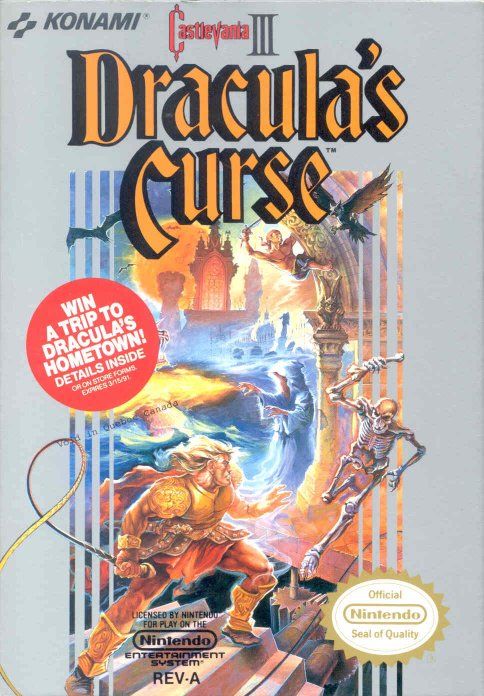
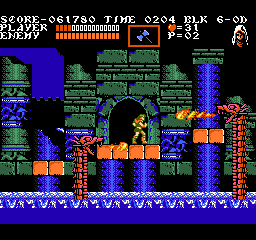
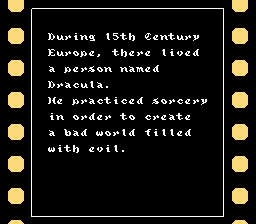

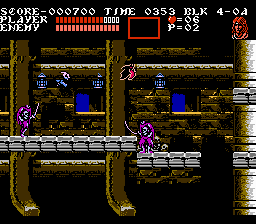
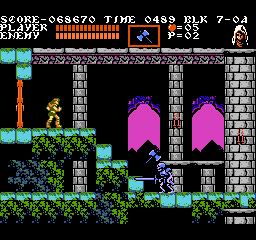



Reviews
There are no reviews yet.